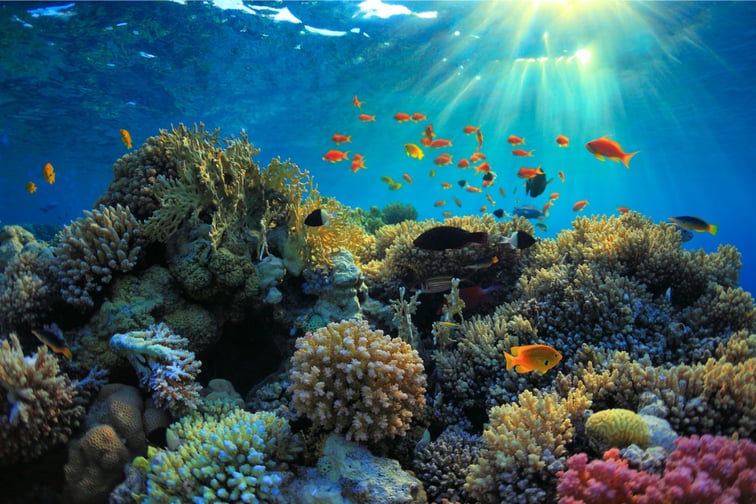

The program, a crucial component of MAR Fund’s Reef Rescue Initiative, utilizes parametric insurance to quickly deploy funds for community-led response activities in repairing reef damage in the aftermath of hurricanes.
The initiative operates across the 1,000 km Mesoamerican reef, spanning Mexico, Belize, Guatemala, and Honduras. With over 65 species of coral and more than 500 species of fish, the reef sustains the livelihoods, nutrition, and coastal protection of over two million people.
WTW’s involvement came in 2021 after it had developed a model that captures the correlation between hurricane intensity and reef damage.
With funding from the InsuResilience Solutions Fund (ISF), WTW first placed the program across four sites, with two in Mexico and another two in Belize. Following a successful first year, the program was renewed and expanded to include two sites in Honduras and one in Guatemala.
This year’s renewal received financial support from the ISF and the United Nations Development Program (UNDP), building on previous assistance from the Ocean Risk and Resilience Action Alliance (ORRAA). Additionally, incumbent AXA Climate was selected as the insurance capacity provider, following a competitive placement process by WTW.
For its third year, the program will now encompass two additional sites in Honduras, plus two more in Belize through a partnership with the Wildlife Conservation Society (WCS). This expansion will bring the total number of reef sites covered by the program to 11 across the MAR region.
“Entering the third year of this program demonstrates how the convening powers of collaborative, trusted partnerships and pre-arranged finance can move the needle on coastal protection and ecosystem resilience,” said Simon Young, co-lead of the disaster risk finance and parametrics team in the Climate and Resilience Hub at WTW.
In a Press release, WTW detailed the role that the program had played in the restoration of the Turneffe Atoll Marine Reserve in Belize after it was damaged by category 1 Hurricane Lisa last November.
According to the release, WTW’s calculations confirmed that wind intensity reached 70 knots. This triggered a US$175,000 payout that MAR Fund received in full within just two weeks of the event.
Soon after, MAR Fund disbursed this payout to brigades coordinated by the Turneffe Atoll Sustainability Association (TASA). The brigades were later deployed to assess reef damage and undertake initial response activities, including stabilizing and repositioning almost 200 coral fragments.
María José González, executive director of MAR Fund, stressed the innovative nature of the program as an instrument for risk management and emergency response.
“Through this program, MAR Fund and its partners, including the governments of the four MAR countries, contribute to the resilience and recovery of the Mesoamerican Reef,” González said.
Similarly, Dr Annette Detken, head of the InsuResilience Solutions Fund, praised the MAR Insurance Program for its contributions to nature-based solutions against climate risks.
“The ISF is proud to co-fund this innovative insurance program protecting a unique natural treasure and providing livelihoods for vulnerable people in the MAR region,” she said.
Antoine Denoix, CEO of AXA Climate, also emphasized the significance of protecting nature as a long-term mechanism in the face of increasing climate-related disasters.
“As a pioneer in impact insurance, our team has demonstrated with this third renewal the consistency of its commitment to ocean conservation,” said Denoix. “AXA Climate is very proud to remain a key partner in the MAR’s resilience and to have contributed to its regeneration after Hurricane Lisa.”
What are your thoughts on this story? Feel free to share your comments below.
